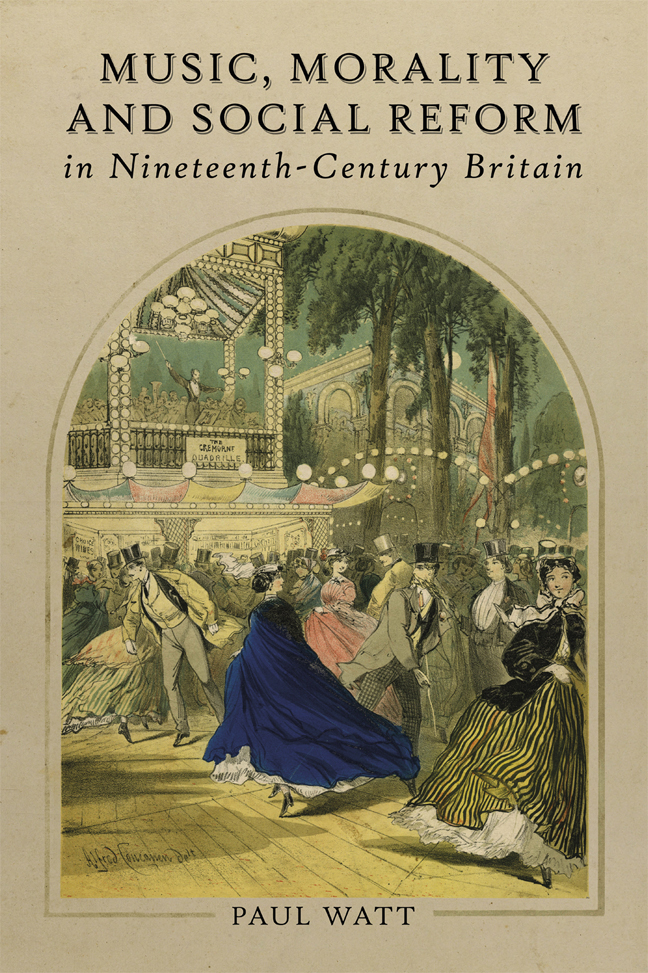1 - Elementary Instruction
Published online by Cambridge University Press: 21 February 2024
Summary
The formation of moral character begins in childhood, and good parenting is a key to this enterprise. In the nineteenth century, however, parents were not the only role models in the home: nannies, governesses and other domestic staff played a part in the running of all kinds of morality-building activities in homes of the affluent. In other households, siblings and members of extended families facilitated moral or rational recreation. Older children relied less on role models to govern their choice of leisure activities and a large literature was published on what young women and men could do to guide their recreation. The pursuit of ‘purest enjoyment’ (a term we come to shortly), or a heightened moral sensibility, is achieved through engagement with music and is evident through musical and other activities. Recalling Kivy's work from the Introduction, various epistemic, behavioural and character-building activities – involving making music and reading appropriate books and magazines – were used in initiatives to cultivate moral living.
Songs, toys, games, and the making and playing of musical instruments were put into the service of moral education and recreation in the home for children and young adults. Approaches to the education of girls and boys in the nineteenth century have been the subject of extensive studies that emphasise differences in approach for each gender, rather than the common points. Although much of this chapter deals with the rational recreational activities for each gender separately, at times they overlap. By drawing on references to musical activities, I show how the masculine and feminine interests of the period were not always mutually exclusive; as Michael Roper and John Tosh have shown, masculinity and femininity are not distinct entities. This chapter first considers the values underlying most of the educational and recreational activities undertaken by children. It then considers the types of activities considered suitable for moral education for both boys and girls, after which the discussion turns to issues of literature for each gender in turn, lastly illustrating a crossover readership between genders. The chapter draws on an abundance of literature that instructed and guided moral and musical education from infancy to adolescence.
‘PURE ENJOYMENT’: SONGS AND TEXTS
Education and moral instruction sought to provide children with the ‘purest enjoyment’. Impure or irrational thoughts and feelings were considered the result of bad breeding, poor taste and vulgar manners.
- Type
- Chapter
- Information
- Publisher: Boydell & BrewerPrint publication year: 2023



